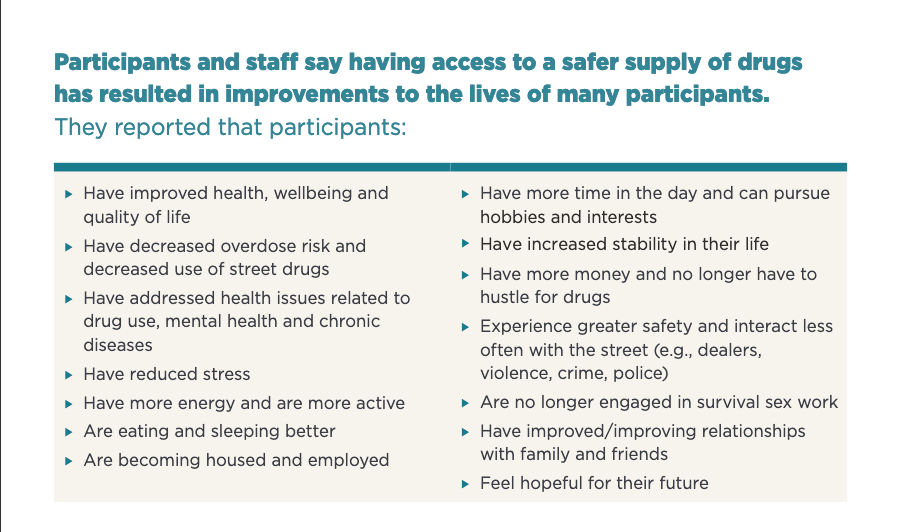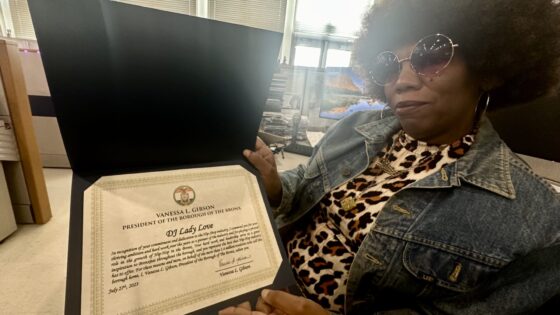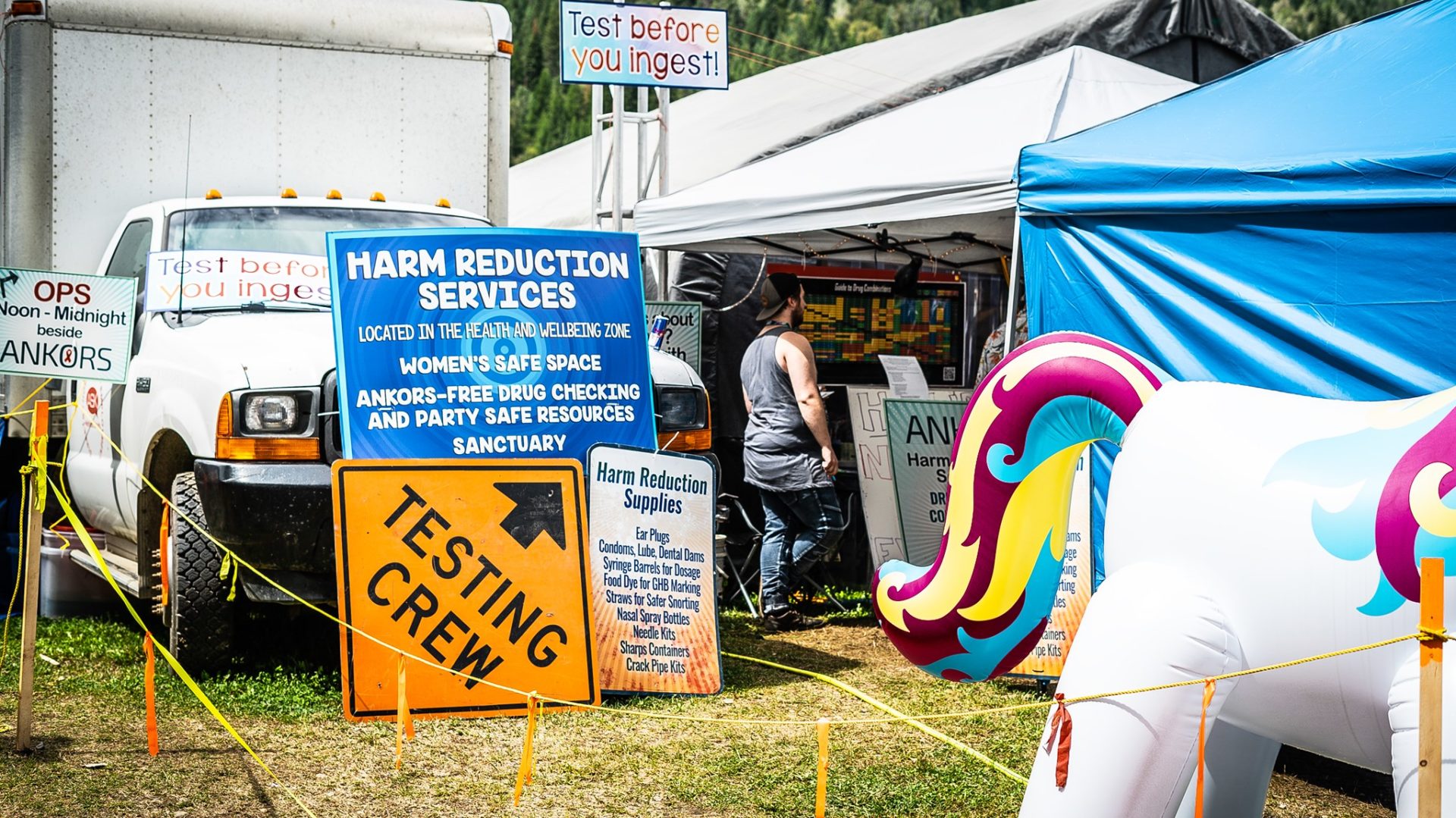Canadian government officials gathered to make a groundbreaking announcement earlier in 2022: Starting next year, adults in British Columbia who are caught possessing a “personal amount” of specific illicit substances will not be arrested or charged criminally. The time-limited decriminalization policy will run from January 31, 2023 until January 31, 2026.
Furthermore, Health Canada announced that it would provide $11.78 million in additional funding to fourteen different organizations that support those with substance abuse issues. One of these organizations is ANKORS (the AIDS Network Kootenay Outreach and Support Society). As a result, the additional funding nearly doubles what ANKORS is receiving through Health Canada’s Substance Use and Addictions Program (SUAP) program.
Anyone that has attended a British Columbia music festival may be familiar with seeing ANKORS tents. The organization has offered drug testing at over twelve BC festivals, including Shambhala Music Festival and Bass Coast. People will line up for over two hours to get their substances tested. And, if you want to see what substances ANKORS is detecting, they have a drug results board.
Shambhala has had a longstanding relationship with ANKORS, including matching donations over $100 on ANKORS’ GoFundMe campaign for a FTIR spectrometer. The drug testing results that ANKORS provides proves that we need Harm Reduction; people from all walks of life will consume drugs regardless of the legality. And too often, what is thought to be one drug tests positive for a much stronger, deadlier substance.
Like Julie-Soleil Meeson, ANKORS volunteer, says in the video below: “Drugs are just there, they exist. So, why not acknowledge it and lets do something about it.”
While harm reduction advocates have cautioned for a long time that decriminalization has potential to be a step in the right direction, it’s not the only tool in the toolkit. Jessica Lamb, the Peer Lead Development Coordinator at ANKORS, has two concerns about this new legislation.
“I’m a little torn between it because it’s like, first of all, great that we’ve gone ahead and decriminalized 2.5 grams of personal possession and it’s not going to start until January 2023, so how many more needless deaths are going to happen between now and then?” she posed. “The other issue is that it doesn’t address safe supply.”
Health Canada defines safer supply as “providing prescribed medications as a safer alternative to the toxic illegal drug supply to people who are at high risk of overdose”. Shortly after the opioid crisis was declared a public health emergency ANKORS, Interior Health and the Nelson City Police founded the Nelson Fentanyl Task Force (NFTF). Eight months into the 2020 Covid-19 pandemic it was found that 1068 people had died from the toxic drug supply – more than all of 2019. That year the NFTF directed $15,000 in funding to improve access to safe supply. The funding also supports an outreach worker that works with other outreach staff from local organizations such as, Nelson CARES, Interior Health and Nelson Community Services.
The aforementioned SUAP program gave an additional $3.5 million in funding that extended four safer supply pilot programs across the country. And that’s a good thing – early results from these programs have shown that participants quality of life has improved significantly. See an excerpt from the “Early Findings from Safer Supply Pilot Projects” table below.

The upcoming decriminalization policy isn’t the first time that BC has taken the lead on substance abuse issues in Canada. The first federally approved consumption site coined “InSite” opened in 2003 on Vancouver’s Downtown Eastside. It was originally intended to be a three year pilot project run by Vancouver Coastal Health (VCH) and PHS Community Services Society. The Federal government granted the site a temporary extension, and then another one.
Despite requests, Health Minister Tony Clement refused to grant the project a permanent exemption to the Narcotics Control Act. And so the case was brought to the Supreme Court of Canada. The Supreme Court unanimously ruled that the site, often marred with controversy would be allowed to stay open.
There are 39 Supervised Consumption Sites (SCS) across Canada as of 2022. The Government of Canada’s Data Blog estimates that 3,000 people visit these sites across the country daily. And, some of the SCS sites with the highest volume see 500 or more visits in a single day. The Data Blog estimates that these sites have served 35,000 unique clients between 2017 and 2019. According to Vancouver Coastal Health, InSite has served over 3 million people without a single person succumbing to overdose. Additionally, the British Columbia Centre for Excellence in HIV/AIDS (BC-CfE) has found that there has been a 35% reduction in overdose deaths in the surrounding neighborhood. In contrast, overdoses across the remainder of the city of Vancouver have decreased by 9%.
In 2018, the BC Government passed the “Opioid Damages and Health Care Costs Recovery Act” and brought a class action lawsuit against several opioid manufacturers in an attempt to recoup healthcare costs caused by opioid addiction. Despite BC’s class action not facing certification until autumn 2023, one of the defendants has chosen to settle out of court. The company known for the manufacturing of OxyContin, Purdue Pharma have settled for $150 million in “monetary benefits”. On top of the monetary payment, Purdue must provide “access to information and documents relevant to the lawsuit.” The BC government alleges that “opioid manufacturers, distributors and their consultants engaged in deceptive marketing practices” which led to high levels of opioid addiction.
A Canadian Federal website estimates that 30,843 people across Canada have died from opioid toxicity from January 2016 to March 2022. And a third of these deaths occur in British Columbia. Since the public health emergency was declared on April 14th 2016 over ten thousand people in British Columbia have lost their lives to the toxic drug supply.
In case you or someone you know needs help with substance use, including overdose prevention, these services are available:
ANKORS 1-800-421-AIDS (2437)
Line open Monday – Thursday 9 AM – 12 PM, 1 PM – 4:30 PM
Wellness Together Canada 1-866-585-0445 Open 24/7. Adults needing support text WELLNESS to 741741; Youth text WELLNESS to 686868 and Frontline workers text FRONTLINE to 741741
Additional substance use resources can be found on the Government of Canada’s website here.
Important things happen in Pacific Northwest nightlife, and DMNW will send you alerts!







































